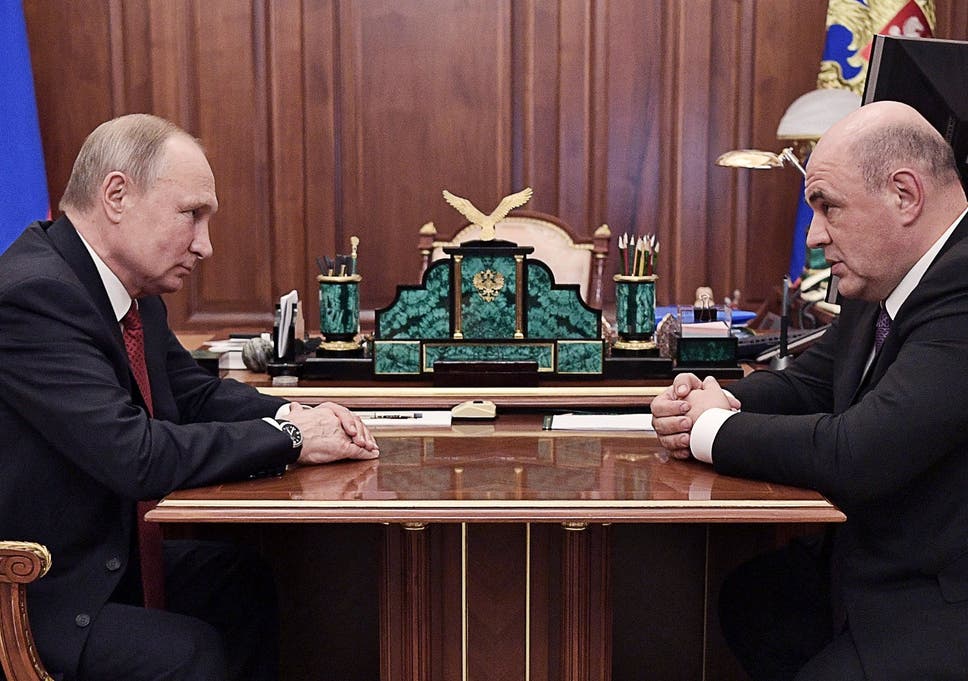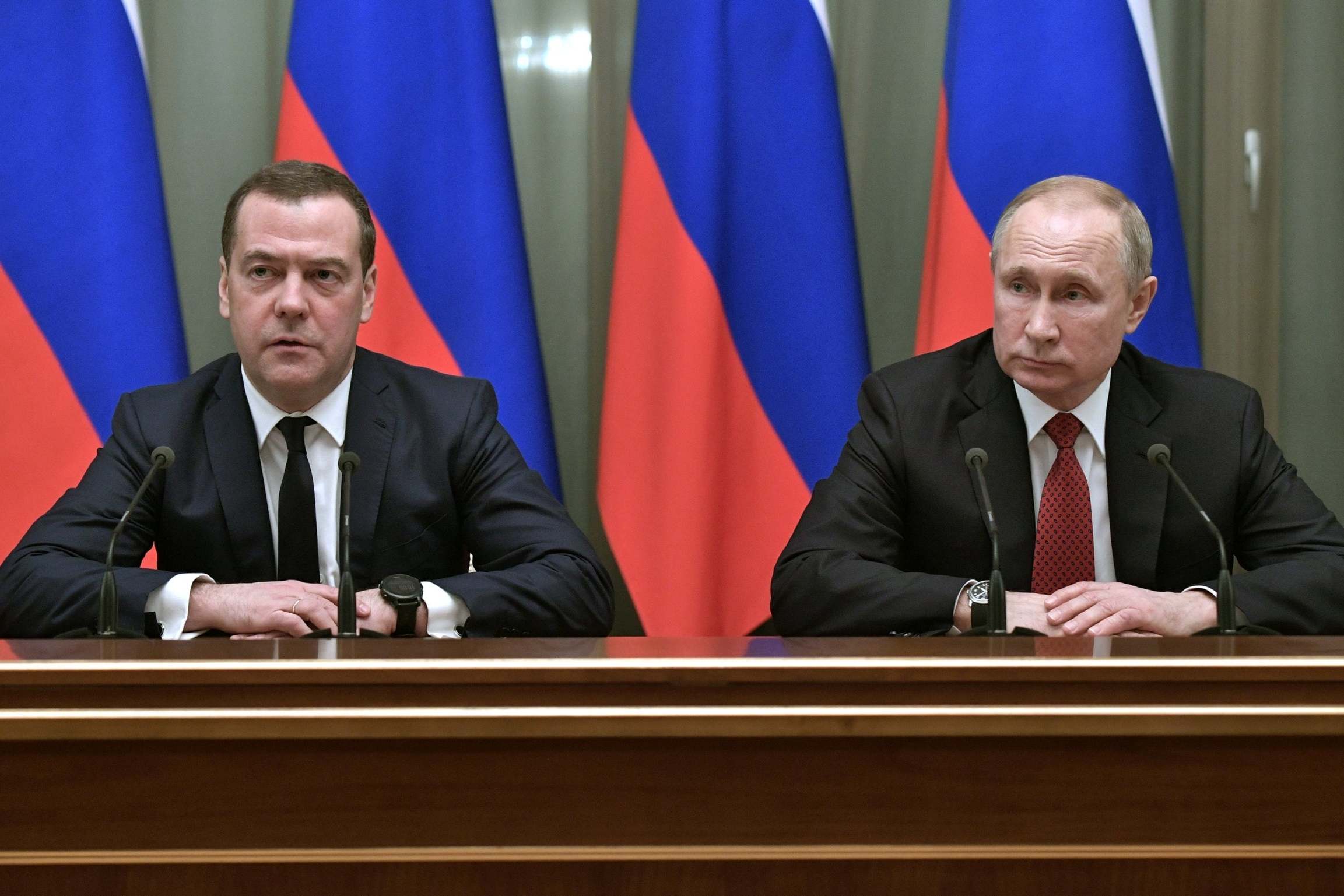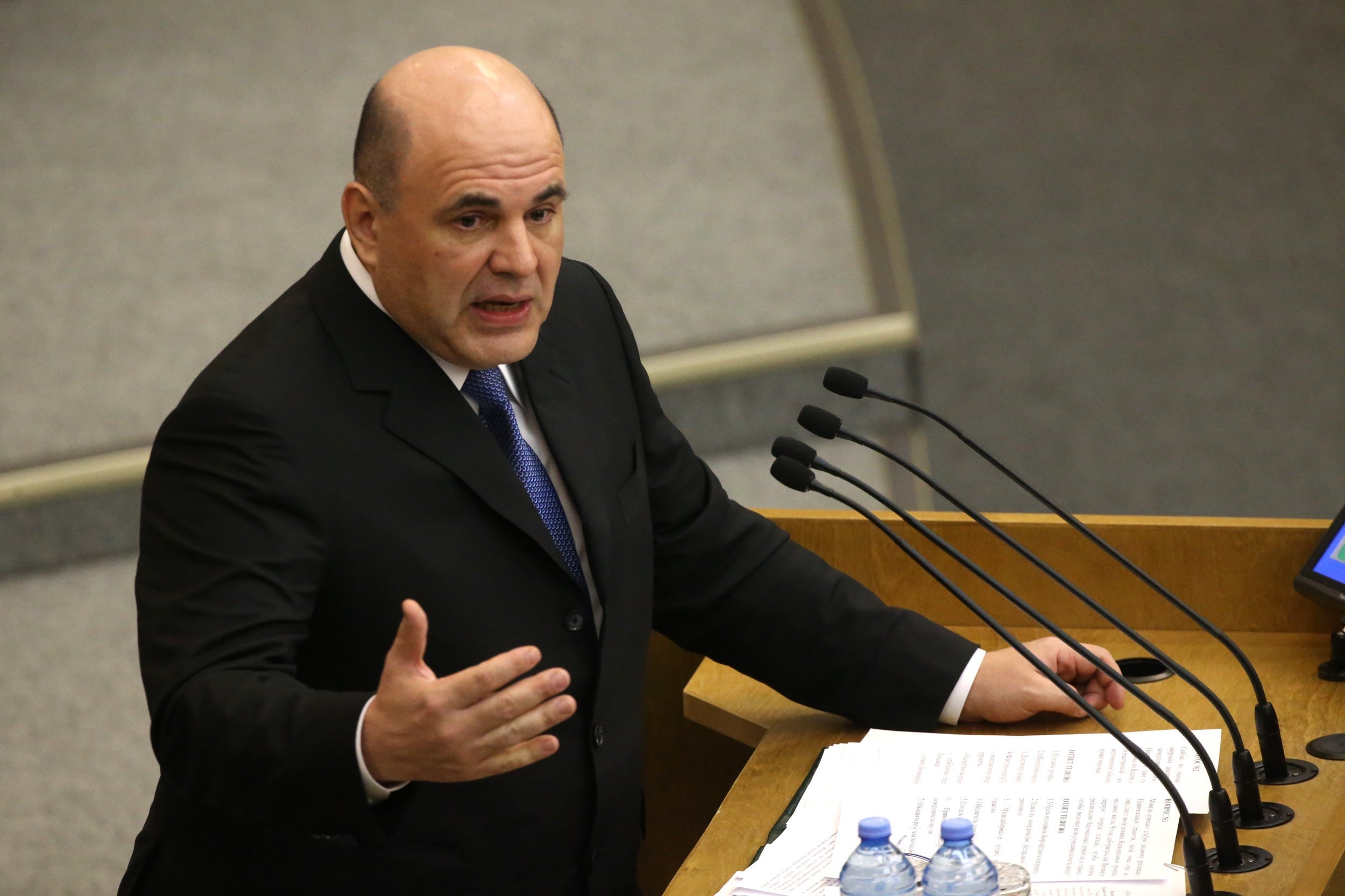
As far as Russia’s domestic politics go, there is perhaps only one day in the last 10 years that could claim to match the drama of yesterday’s developments.
That day, 26 September 2011, was when Dmitry Medvedev announced he was stepping aside for Vladimir Putin to return to the presidency.
Aides had pushed for Mr Medvedev to stay on, and Mr Putin was reportedly anxious that his associate would run a second time. But Mr Medvedev fell in line, swapped jobs with the then notional prime minister, and the rest is history.
On Wednesday, Mr Medvedev found out that politics is no sentimental game – Kremlin bulldog-under-the-carpet politics even less so – being unceremoniously dumped from frontline politics to a position that didn’t even exist.
That was not before an equally dramatic moment that saw the long-time president propose ripping up chunks of the Russian constitution.
Mr Putin’s proposed changes will massively tilt the balance of power away from the president, towards parliament and a newly beefed-up State Council, a federal governing body that currently wields limited authority. The lower parliament will gain rights to choose the prime minister and cabinet; the upper chamber will have its say over security and judicial appointments. The president will also only be allowed to serve a total of two terms – before, this was two ‘consecutive’ terms.
Other proposals suggested new restrictions on who can ballot for the presidency, and on the jurisdiction of international courts like the European Court of Human Rights.
The plans seemed designed to accommodate a number of not-quite-retirement scenarios for life after 2024 when, according to Russian law, Mr Putin is obliged to leave office.
The Russian president revealed little in the way of detail. But what seems clear is that a remarkable amount is being changed for one thing to stay the same – him at the top of Russian politics.
Reacting over the last 24 hours, local commentators compared the scale of Mr Putin’s plans to a “coup”, a “revolution from above” and “a return to the Soviet Union.” One suggested the ruling party may return to a central role akin to the Communist one.
Russia’s opposition was outraged, if not entirely surprised.
“The speech showed what blockheads (and/or crooks) those who claimed Putin would leave in 2024 are,” said Alexei Navalny, Mr Putin’s most prominent foe. “Putin’s only aim is to … remain the only leader for life, taking ownership of an entire country and appropriating wealth to himself and his friends.”

Mr Medvedev’s government had long been ridiculed, and his resignation predicted dozens of times. But the timing of his departure stunned all but a chosen few in Mr Putin’s inner circle.
Certainly, the former prime minister was seriously damaged by investigations into his alleged corruption, which provoked street protests. His government has also presided over five years of falling real incomes. But Mr Medvedev could hardly be blamed for this, coming as it largely did as the result of low investment confidence and sanctions, both direct consequences of Vladimir Putin’s belligerent domestic and foreign policies.
Most believed Mr Medvedev’s 2011 show of loyalty to the president would be enough to see him keep the job. For that reason, he was also seen as Mr Putin’s likely presidential successor. His apparent willingness to act as a fall guy to Mr Putin makes the demotion even more puzzling.
We do not, as yet, have a clear picture about what happened in the run up to yesterday’s shock announcement, but the signs of major disagreement are there. According to the Kommersant newspaper, Mr Medvedev had been pressing for a different type of reform, merging governmental and presidential functions along the lines of the US presidential system. Novaya Gazeta, a newspaper associated with the opposition, suggested Mr Medvedev “lashed out” after discovering Mr Putin’s radically different plans.
Other more loyal outlets said the Russian president became angry with slow progress and wanted to replace his long-time associate with someone more results-oriented.
The incoming premier certainly fits that bill. Mikhail Mishustin, 53, was not widely known outside government, but made a name for himself as a reforming technocrat. He was confirmed by a vote in parliament on Thursday.

Kremlin insiders say the former tax man stood out by using digital technology to turn around Russia’s failing tax service, now considered to be one of the most efficient in the world. Over the past five years, a time when the economy has stagnated, Mr Mishustin achieved a remarkable feat with a 50 per cent growth in tax receipts.
Mr Mishustin’s tax service is also considered to be one of the least corrupt government bodies — though critics say his own personal record on corruption is less impressive. Soon after he was named, Proekt, a Russian investigative publication, suggested that Mr Mishustin may have hidden his ownership of several properties in desirable locations in and around Moscow. Proekt reported that the properties (estimated value £7.5 million) were listed as belonging to the Russian government.
Whether Mr Mishustin has a role to play in Mr Putin’s long-term transition plan is anyones guess. The incoming premier is not associated with any of the ruling groups and in Russia’s system of informal authoritarian rule forging an independent role will be difficult. Many assume he will play the role of a caretaker while a notional successor is sought, though anything is possible.
What is clear is that the process of Mr Putin transitioning from the presidency has begun. The state-of-the-nation speech offered new clarity elsewhere, too. We now understand that parliament will become more powerful, his presidential successor less so, and the scenario of a forced unification with Belarus, as unlikely as it always seemed, is now firmly off the table.
But the president also left a few doors open about life after 2024: would he opt for the role of prime minister, speaker of either parliament, or as head of the newly strengthened state council?
“Putin’s proposals came as a bombshell, but they remain vague,” said Maxim Trudolyubov, an editor-at-large of the Vedomosti newspaper. “They seem designed for the widest possible interpretation. But don’t doubt that Putin intends to remain Russia’s dominant figure and supervise a political transition based on his own scenario. Whether he succeeds is another matter.”
According to Mr Trudolyubov, Mr Putin seemed to have taken inspiration from the model of Deng Xiaoping, China’s de-facto leader between 1977 and the mid-1990s, and Lee Kuan Yew, Singapore’s first prime minister from 1959 to 1990. Both men continued to supervise their governments from seemingly inconspicuous roles.
Another role model may have been Stalin, he said: “You make your move before they do.”







